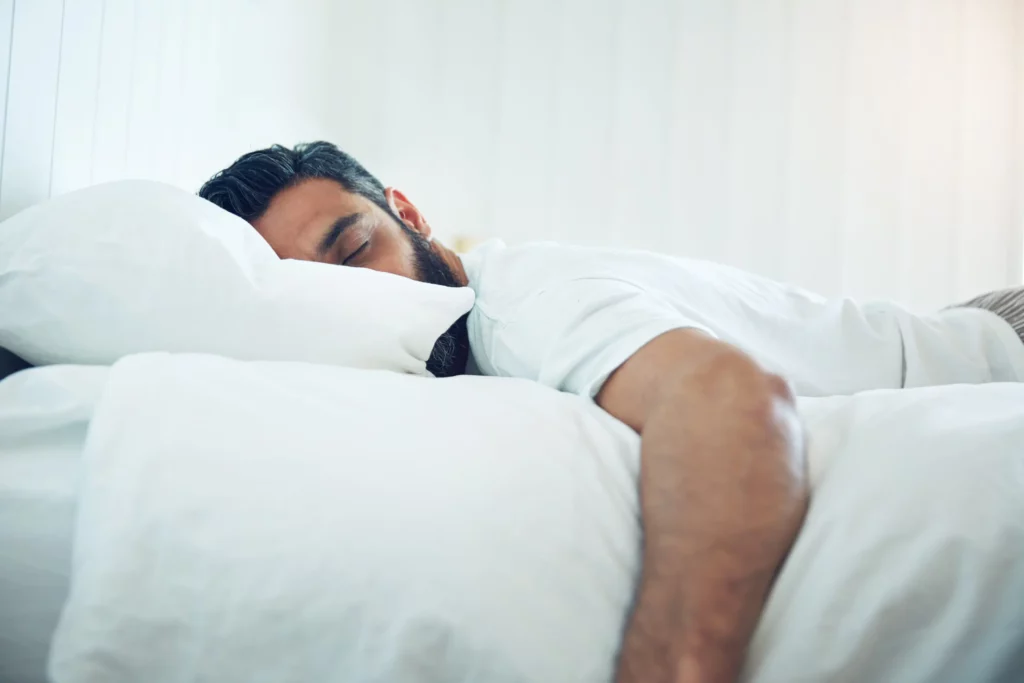Sleep is one of the most vital aspects of overall health, yet millions of people around the world struggle to get enough restful sleep due to sleep apnea — a serious but often overlooked disorder. While medical treatments like CPAP therapy are highly effective, there are also natural ways to reduce sleep apnea symptoms and improve your overall sleep quality.
This guide explores what sleep apnea is, its main causes and symptoms, and practical, natural remedies you can adopt to support better sleep health.
What Is Sleep Apnea?
Sleep apnea is a sleep disorder that causes your breathing to repeatedly stop and start during sleep. The two main types are:
- Obstructive Sleep Apnea (OSA): Caused by the airway collapsing or becoming blocked during sleep.
- Central Sleep Apnea (CSA): Caused by the brain failing to send proper signals to muscles that control breathing.
When breathing pauses occur, your oxygen levels drop, waking you briefly to resume normal breathing. This happens multiple times per night — often without you realizing — and leads to poor sleep quality, fatigue, and long-term health risks like heart disease, stroke, and diabetes.
Common Sleep Apnea Symptoms
Recognizing the signs of sleep apnea is the first step toward better sleep health. Symptoms can vary from person to person, but common indicators include:
- Loud, chronic snoring
- Gasping or choking during sleep
- Morning headaches
- Daytime sleepiness or lack of energy
- Difficulty concentrating or memory problems
- Mood swings or irritability
- Restless sleep or frequent awakenings
If you or your partner notice these symptoms, it may be time to consider a sleep study to confirm the diagnosis.
Why Sleep Apnea Shouldn’t Be Ignored
Untreated sleep apnea doesn’t just cause fatigue — it can significantly impact your long-term health. Studies in sleep medicine have linked sleep apnea to:
- High blood pressure and heart disease
- Type 2 diabetes
- Stroke
- Obesity
- Depression and anxiety
The good news? There are natural and lifestyle-based treatments that can help manage sleep apnea symptoms effectively.
Natural Ways to Reduce Sleep Apnea Symptoms
You don’t always have to rely solely on machines or medications to manage sleep apnea. Here are scientifically supported and practical natural remedies that can help improve your breathing and sleep quality.

1. Maintain a Healthy Weight
Excess weight, especially around the neck and upper airway, can increase pressure on your breathing passages, worsening obstructive sleep apnea.
Losing even a small amount of weight can significantly reduce symptoms.
Tips to get started:
- Incorporate a balanced diet rich in vegetables, fruits, and lean proteins.
- Limit sugar, alcohol, and processed foods.
- Aim for at least 30 minutes of daily exercise, such as walking, swimming, or cycling.
2. Change Your Sleeping Position
Sleeping on your back can cause the tongue and soft tissues to block the airway.
Instead, try side sleeping, which helps keep the airway open and reduces snoring.
Pro tip: Use a body pillow or special anti-snore pillow to stay comfortably on your side throughout the night.
3. Avoid Alcohol and Sedatives
Both alcohol and sedatives relax the muscles of the throat, increasing the likelihood of airway collapse during sleep.
If you drink, avoid alcohol at least 3–4 hours before bedtime.
If you take prescription sedatives, talk to your doctor about possible alternatives that won’t affect your breathing.
4. Quit Smoking
Smoking increases inflammation and fluid retention in the airway, making it more difficult to breathe at night.
Research shows that quitting smoking can significantly reduce sleep apnea symptoms and improve overall sleep quality.
5. Practice Good Sleep Hygiene
Sometimes, improving your sleep habits can make a big difference in managing sleep disorders.
Try these tips:
- Stick to a consistent sleep schedule (same bedtime and wake-up time).
- Avoid screens (phones, laptops, TVs) at least 30 minutes before bed.
- Keep your bedroom cool, dark, and quiet.
- Try relaxation techniques like deep breathing, meditation, or gentle stretching.
6. Use Nasal Strips or a Saline Spray
For people with nasal congestion or mild airway obstruction, nasal strips and saline sprays can help open up nasal passages. This can reduce snoring and make breathing easier during sleep.
7. Try Oral or Positional Devices
Dentists or sleep specialists can recommend oral appliances that reposition the jaw and tongue to keep the airway open.
These are especially helpful for mild to moderate obstructive sleep apnea and are a natural alternative to CPAP for some individuals.
8. Strengthen Your Airway Muscles
Known as oropharyngeal exercises, these involve strengthening the muscles around the throat and tongue to reduce airway collapse.
Try this exercise routine:
- Press your tongue flat against the roof of your mouth and hold for 5 seconds.
- Say vowel sounds (“A-E-I-O-U”) slowly and deliberately to engage throat muscles.
- Practice tongue slides (move your tongue along the roof of your mouth from front to back).
Doing these daily for 10 minutes can improve airway tone and reduce snoring.
When Natural Methods Aren’t Enough
While lifestyle and home remedies can make a big difference, some people may still need medical intervention. If symptoms persist, your doctor may recommend a sleep study to assess the severity of your condition.
Depending on the results, treatment options may include:
- CPAP therapy (Continuous Positive Airway Pressure): A machine that keeps your airway open during sleep.
- BiPAP or APAP machines: Advanced options for people who struggle with standard CPAP.
- Surgery: In severe cases, to remove tissue or correct structural issues.
The Role of CPAP Therapy
CPAP therapy remains the gold standard for treating moderate to severe sleep apnea. It delivers a constant flow of air through a mask, preventing airway collapse. Many people who use CPAP machines report better sleep, higher energy, and improved mood after just a few weeks.
If you’re hesitant to try CPAP, remember that combining it with natural lifestyle changes can make therapy even more effective.
Final Thoughts
Managing sleep apnea naturally is not just about one change — it’s about creating a healthier lifestyle that supports your body’s natural ability to breathe and rest.
By losing weight, adjusting your sleep position, avoiding alcohol, and improving your sleep hygiene, you can reduce sleep apnea symptoms and enjoy better, more restorative sleep.
However, if your symptoms persist or worsen, don’t hesitate to consult a sleep medicine specialist — proper diagnosis and treatment are key to long-term health.

